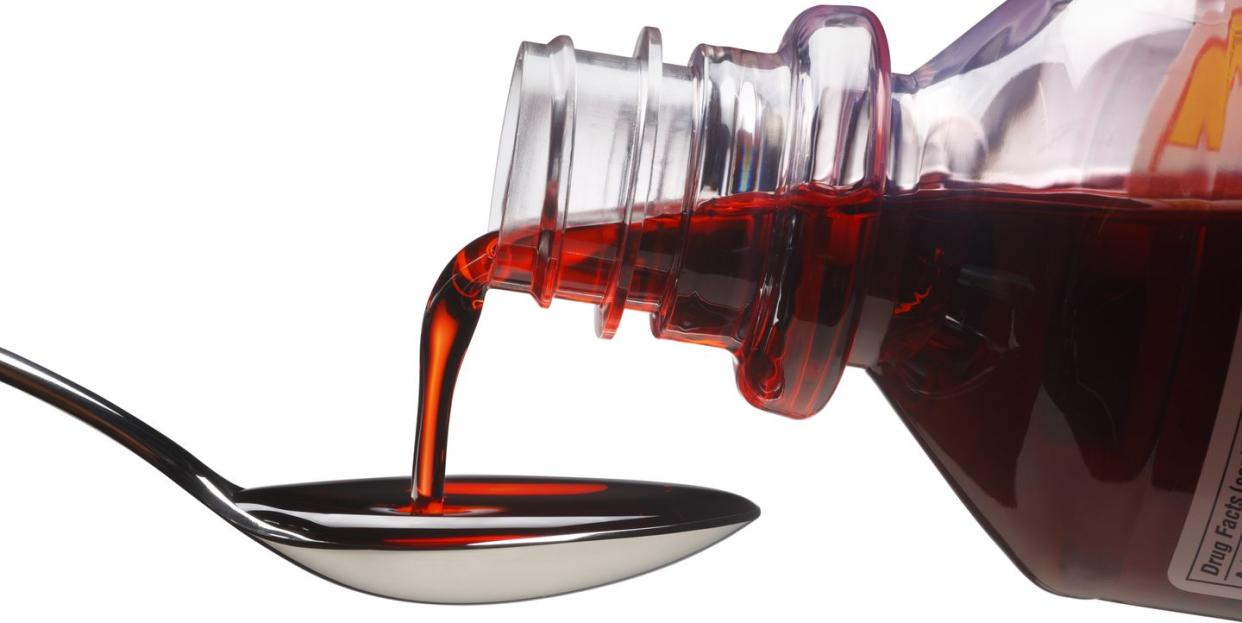Why You Should Avoid Using Some Cough Syrups for COVID-19

Coughing is one of the common symptoms of COVID-19. But some researchers warn against using certain suppressants because they may be unsafe.
A paper published in Nature suggests that one ingredient in over-the-counter cough suppressants, called Dextromethorphan, may increase replication of the SARS-CoV-2 virus, which causes COVID-19. The finding is a part of a project aimed at identifying existing medications that can be used to treat COVID-19 and its symptoms.
However, there are many types of cough medications, the broad categories being suppressants, the type studied above, and expectorants. This research specifically looked at medications with dextromethorphan, which acts as a suppressant.
The study didn't find that that the drug would make COVID-19 worse, increase your chances of developing COVID-19, or otherwise harm you in any way. It's just currently a finding from research that was conducted in monkeys, and it's important to note that animal findings often don't hold true in humans. Still, the authors suggest being cautious about dextromethorphan.
"By the same standard, we find that the widely used antitussive dextromethorphan harbors proviral activity and therefore its use should merit caution and further study in the context of COVID-19," they write.
Dextromethorphan is understood to work by decreasing activity in the part of your brain that causes coughs.
For cough relief without relying on that ingredient, use an expectorant that contains guaifenesin, which thins mucus to make coughing easier.
People with COVID-19 typically experience a dry cough, meaning you aren't spitting up mucus. Dry coughs are also caused by pollen, animal dander, smoke, and pollution. There are other ways to manage coughing fits if you'd rather forego medication. A tablespoon of honey in a warm drink helps soothe evening coughs, according to WebMD. Gargling with salt water, which is typically recommended for sore throats, can help improve discomfort from coughing, according to Healthline. Simply dissolve one teaspoon of table salt in a glass of warm water.
You Might Also Like